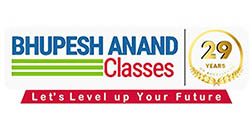DIFFERENCES BETWEEN CMA USA AND CMA INDIA
Differences between CMA USA and CMA India
CMA (Certified Management Accountant) USA and CMA India are two different certifications offered by two different organizations. While they have some similarities, there are also significant differences between them.
Here are some of the differences between CMA USA and CMA India:
- Global Recognition: CMA USA is recognized globally, while CMA India is primarily recognized in India. This means that CMA USA holders can work in more than 100 countries, while CMA India holders have limited opportunities outside of India.
- Exam Format: The CMA USA exam is computer-based and consists of two parts, each with 100 multiple-choice questions and two essay questions. The CMA India exam is paper-based and consists of four parts, each with 100 multiple-choice questions.
- Exam Difficulty: The CMA USA exam is considered to be more difficult than the CMA India exam. This is because the CMA USA exam covers a broader range of topics, and the questions are designed to test higher-level skills such as critical thinking and decision-making.
- Course Content: The CMA USA course covers topics such as financial planning, analysis, control, and decision-making. The CMA India course covers similar topics, but it also includes Indian-specific laws, regulations, and accounting standards.
- Cost: The cost of obtaining the CMA USA certification is generally higher than the cost of obtaining the CMA India certification. This is because the CMA USA certification is recognized globally and has a higher value in the job market.
Overall, both CMA USA and CMA India are valuable certifications for professionals in the accounting and finance fields. The choice between the two will depend on your individual circumstances, career goals, and where you plan to work. If you want to work internationally, the CMA USA certification may be a better choice. If you plan to work primarily in India, the CMA India certification may be more appropriate.
learning through video lectures can be helpful in preparing for the US CMA (Certified Management Accountant) exam. Video lectures can provide a convenient and flexible way to study the course material, and they can be especially helpful for visual learners who prefer to see concepts and ideas presented in a multimedia format. Here are some ways in which video lectures can be helpful for US CMA exam preparation:
- Explanation of Concepts: Video lectures can provide a detailed explanation of complex concepts and ideas in a way that is easy to understand. This can be especially helpful for topics that may be difficult to understand from reading a textbook.
- Visual Learning: Video lectures can include visual aids such as diagrams, charts, and graphs that can help to illustrate key concepts and ideas. This can be especially helpful for visual learners who may struggle to understand concepts when presented in a purely text-based format.
- Flexibility: Video lectures can be accessed from anywhere with an internet connection, allowing students to study at their own pace and on their own schedule. This can be especially helpful for students who may have other commitments such as work or family responsibilities.
- Revision: Video lectures can be re-watched as many times as needed, allowing students to review the course material as often as necessary to fully understand the concepts.
- Practice Exercises: Many video lectures include practice exercises and questions to help reinforce the material covered in the lectures. This can be especially helpful for exam preparation.
In conclusion, video lectures can be a helpful tool for US CMA exam preparation, but it is important to use them in conjunction with other study materials such as textbooks and practice exams. It is also important to ensure that the video lectures are from a reputable source and cover all of the topics that will be tested on the exam.
We at Bhupesh Anand Classes Provide best in Class Video Lectures and Study Material to Prepare for US CMA Exam. Our Video lecture have all above Features with Faculty support and live doubt session


